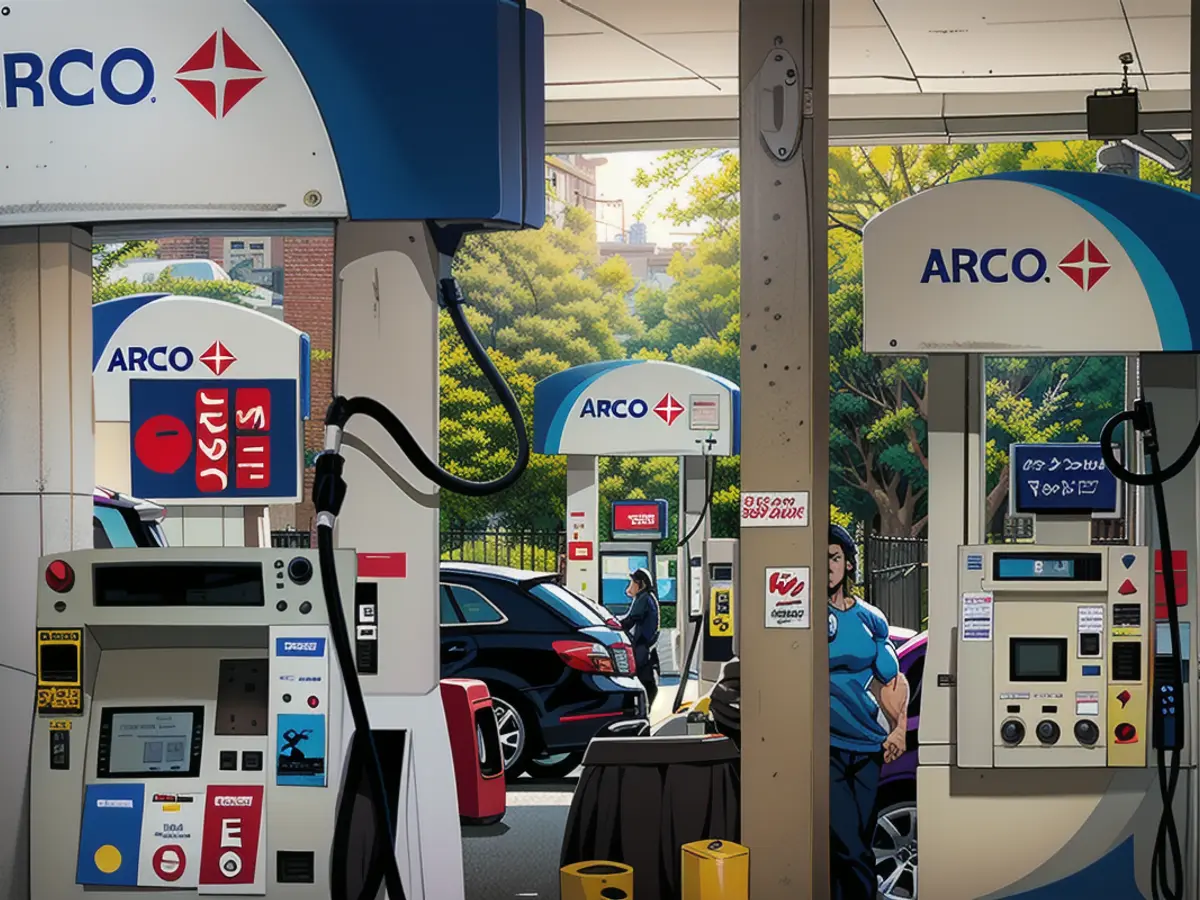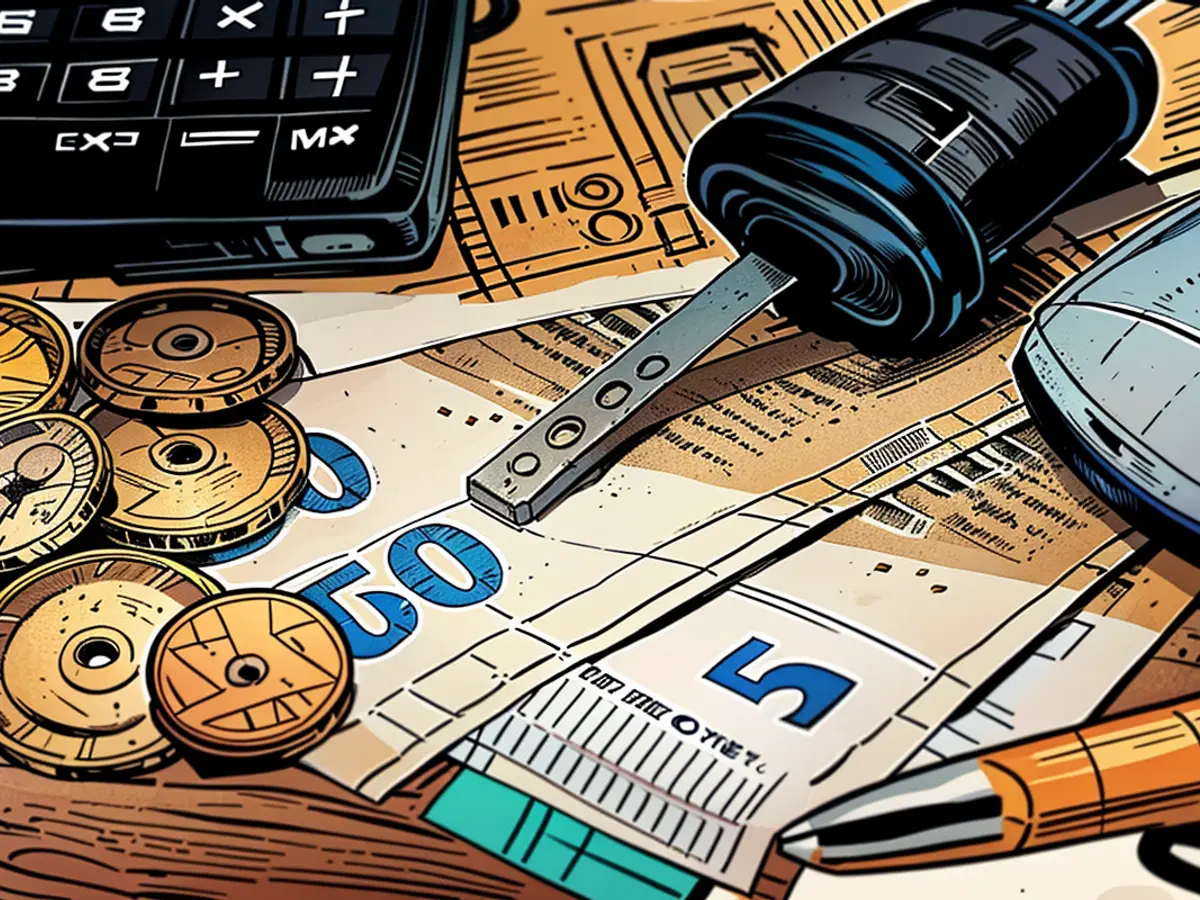Perspective: One statistic that may dictate the outcome for Biden and Trump
The current average cost for a gallon of regular unleaded gas across the country is approximately $3.59. This price is situated midway between the historical low of nearly $2 during the pandemic when numerous people stayed at home and the peak of $5 in 2022 due to Russia's invasion of Ukraine and subsequent restrictions on Russian oil.
Using my economic analysis of previous presidential elections based on the state electoral college votes, which encompass various political and economic elements, if gasoline prices drop to around $3 per gallon by the time of the elections, President Joe Biden is more likely to regain his position. However, if gas prices surpass $4, former President Donald Trump holds a higher likelihood of victory. This assumption doesn't consider additional changes in the economy and the political scenario that could potentially sway the voters before election day.
Since the early 20th century, gas prices have played a significant role in our perception of financial stability and impacted electoral results.
Although gas prices represent a small portion of an individual's overall budget, accounting for less than 5% of overall consumer spending, they have a considerable effect on families, as they fluctuate significantly. When prices go up, it is challenging for many individuals to drive less. People must pay for gas regardless of the price to commute to work, run errands, and transport their children to school.
Increased prices can especially burden low-income households who live from paycheck to paycheck. If they have to spend more money on gas, they must choose between cutting back on other expenses, resorting to credit cards, or delaying other bill payments. This financial dilemma is particularly relevant in crucial swing states, such as Georgia and North Carolina, where individuals spend a lot of time on the road.
Surveys reveal that consumer sentiment is affected by gas prices, making them a significant factor in the country's psyche. The University of Michigan's long-standing surveys of consumer sentiment have revealed a sharp decline as gas prices have increased since the beginning of the year.
Rising gas prices today may cause more unease than in the past due to the significant surge in prices for various items, such as food and rent. People worry that overall inflation may be picking up once more.

High inflation can adversely affect people's moods, as most Americans have not experienced it. The period of high inflation occurred when Baby Boomers purchased their first automobiles. Moreover, individuals feel that the cost of the same product or service has drastically increased over a brief period of time, making them believe that they are being taken advantage of unjustly.
Rising gas prices may also cause the Federal Reserve (Fed) to be less inclined to decrease interest rates. The Fed takes into account inflation expectations, influencing future inflation, by evaluating household, business, and investor expectations for inflation. If oil and gas prices, which impact inflation expectations, escalate, the Fed might resist cutting rates and may consider increasing them again.
Therefore, the price of gasoline a few weeks before the elections is crucial. However, predicting this price is difficult, as it's influenced by diverse factors, such as the strength of the Chinese economy, the effectiveness of Russian oil sanctions, Saudi Arabia's oil output, and the production capabilities of US shale oil producers.
While it seems that Biden's policies may harm the fossil fuel industry, the US is currently the world's largest oil producer, producing approximately 13 million barrels each day – a 1 million barrel increase within a year. Despite an increase in US oil production, it has not led to a significant decrease in gasoline prices.
Factors like tensions between Israel, Hamas, and Iran could jeopardize oil supplies from the Middle East, disrupting prices. Additionally, the Saudis could reduce production to boost oil prices and revenues to support their citizens and finance investments required to diversify their economy. Furthermore, global manufacturing, which necessitates a considerable amount of oil, may recover more than expected.
To conclude, the price of a gallon of gasoline could be the most accurate indicator of the presidential election's outcome, and it is recommended to monitor it closely instead of relying on surveys or betting markets.

Read also:
- This will change in December
- Dikes withstand water masses so far - Scholz holds out the prospect of help
- Fireworks and parties ring in 2024 - turn of the year overshadowed by conflicts
- Attacks on ships in the Red Sea: shipping companies avoid important trade route
People often have strong opinions about the impact of gas prices on their daily lives and election outcomes. Regardless of their political affiliations, many individuals believe that lower gas prices could benefit President Joe Biden's re-election chances, while higher prices might increase former President Donald Trump's appeal.
The analysis of gas prices as a predictor of electoral results has a long history, influencing people's perceptions of financial stability and shaping their consumer sentiment.
Source: edition.cnn.com








